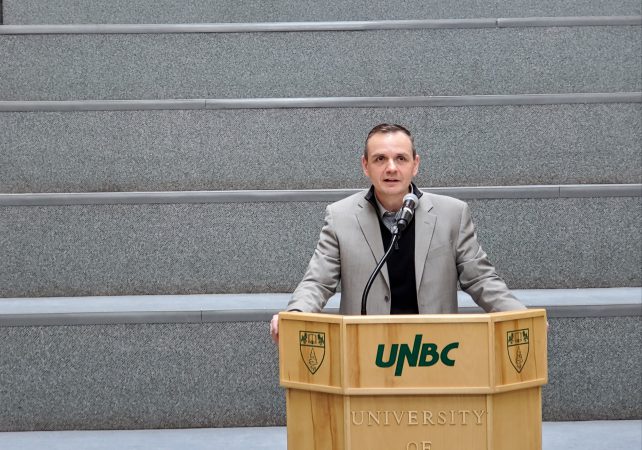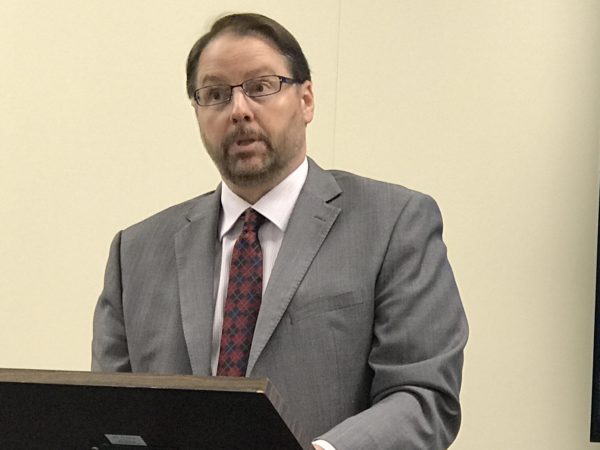Life as we know it isn’t anywhere close to getting back to normal due to COVID-19 and for postsecondary students in Northern BC, the adjustment to a mostly online-based class structure is being accompanied by a familiar problem.
Students at UNBC and CNC are still paying full-priced tuition despite not getting the full on-campus experience.
Amarilys Ducharme is in her fourth-year enrolled in the Bachelor of Arts program with a focus in Indigenous Studies who is displeased with the direction that’s being taken by UNBC administration.
“I’m paying just as much as I did last year for classes that I am going to be taking in my living room where I am not going to be able to see my instructor, where I am not going to collaborate with my peers. It’s just ridiculous.”
“What does it mean to have a meaningful format when I have had classes where we have done group circles and people cry in our classes and people have that connection with each other and be in the presence of elders. It doesn’t parallel (the online classes) to the kind of academic experience I am going to receive compared to what I am paying for.”
Ducharme pursued the matter of tuition costs with the university employees ahead of the academic year and was less than satisfied with the feedback she received in return.
“The answer that I got is UNBC will not be reducing tuition because the courses are still running and have been redesigned to ensure the content and assessment is meaningful in an online format.”
“In the past, there have been many online classes at UNBC and they often have lower tuition because it’s online, so we’re all those classes that were offered previously less meaningful? It completely disregards the impact a teacher has on a student’s life.”
UNBC students have been seemingly put through the wringer for the last two years, first dealing with a labour squabble that disrupted classes along with the early days of the pandemic.
Ducharme states the school has given little in return for those disruptions.
“We are trying to graduate and manage our classloads and it feels like we’re getting bled out. Somebody should be regulating universities a little bit more so they don’t just use us students as cash cows because they are not able to administer programs and service properly.”
“They are just kind of telling us they are not compassionate about our situation and the situation of the world and what they care about is ensuring that they receive monetary compensation for the meager service that they serve us with.”

In an interview with Vista Radio, UNBC Interim President Dr. Geoff Payne defended the school’s position on full tuition fees, stating a decrease was on the table but could not be carried out.
“We looked at our budget and tuition fees in one aspect of our budget when we presented that to the board of governors and the decision was made to keep our 2% tuition increase as part of our budget.”
Payne added that while he understands the frustrations shown by students, he noted additional costs needed to be incurred in order to move to an online-only model.
“There is more funding that is required to move into the online, there is more IT equipment, more technical experience to support it. This year for the fall, we hired more instructional designers for teaching, learning, and technology to support the faculty.”
“There is more to it than just the instruction itself, I can say at the end of the day, the credentials that the students do get from UNBC still hold the same value.”
Another major issue that awaits students upon completion, is job placement as most workplaces are facing challenges associated with the pandemic, such as costs and hiring.
Payne noted the university is doing everything it can to move on their graduates to the next level.
“The services with the job placements, work with the community, not just industry but working with outside of the university community in terms of where our students are going we continue to do that.”
The current student population at UNBC is 3,321.
No Issues at CNC

On the other hand, a more online-focused curriculum has experienced very little hiccups during the first week according to President Dennis Johnson.
He added the topic of tuition costs has not been brought up to this point.
“We have not heard any direct concerns and have received no complaints that I am aware of either through the Student Union or anybody else. This conversation has been going on nationally for quite a few months but really at CNC, we have not had anybody approach us directly.”
“Typically, we are a little bit less costly than some of the other institutions in BC, I don’t know whether that’s a factor or not but we are not hearing it directly.”
Johnson added CNC’s five campuses do have an advantage over some schools as they first shifted most of their classes online.
“We’ve had an opportunity to practice our current model since the last winter semester when everybody abruptly changed in mid-March. The faculty, students, and staff have been working to refine this model.”
However, a chunk of the student population has been on-campus for any labs or hands-on assignments.
“A lot of what the college does is experiential learning, there are a lot of hands-on components. We do have students on-campus every day in shops, labs, and other learning environments where it’s deemed that on-line learning is not a good option.”
The Ministry of Advanced Education, Skills, and Training issued the following statement:
Something going on in the Nechako Valley area you think people should know about?
Send us a news tip by emailing [email protected].
- BC remains in a pandemic, which is why our focus continues to be on the health and safety of students, faculty, and staff as we have worked hard to reduce the risk of COVID-19 transmission.
- We understand the uncertainty some students might feel during these difficult times, but while post-secondary education looks different this fall, students will still receive the high-quality education BC is known for and will still be working toward a valuable credential.
- The government has worked hard to make sure students have the help they need as they head into the Fall term, including:
-
- $3.5 million to help with unanticipated emergency needs
- $1.5 million for Indigenous student supports.
- Here2Talk- $1.5 million mental-health counselling and referral service for all post-secondary students.
- B.C. Access Grant will be available to more than 40,000 learners.
- Students also have access to the $9 billion federal Canada Student Emergency Benefit
- It’s important to note that transitioning to online learning has added costs for many post-secondary institutions, which must still maintain and operate their physical campuses.
- Institutions have also seen a loss of revenue from on-campus services such as cafeteria, parking, and conferences.





